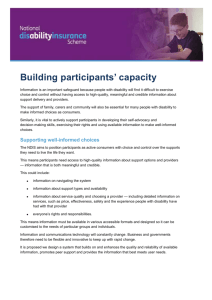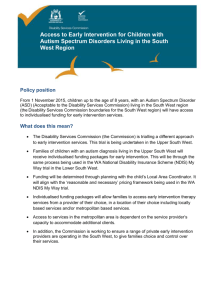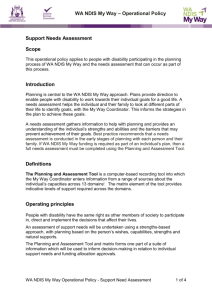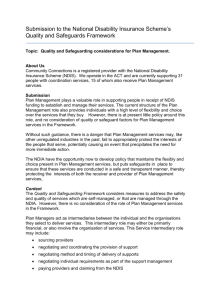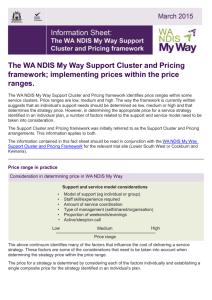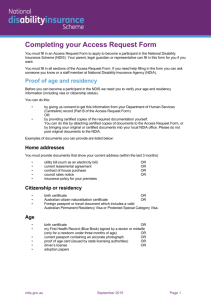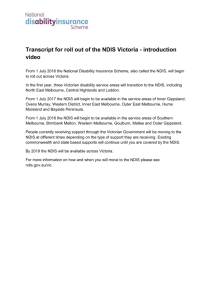National Disability Insurance Scheme (NDIS)
advertisement
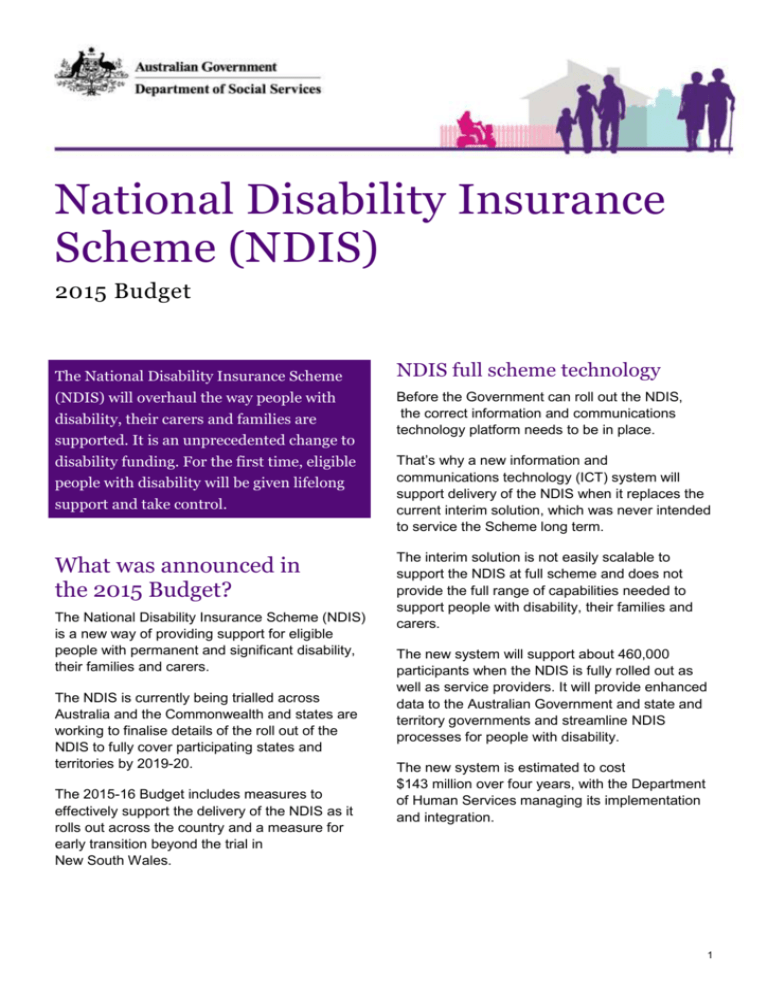
National Disability Insurance Scheme (NDIS) 2015 Budget The National Disability Insurance Scheme NDIS full scheme technology (NDIS) will overhaul the way people with disability, their carers and families are supported. It is an unprecedented change to disability funding. For the first time, eligible people with disability will be given lifelong support and take control. Before the Government can roll out the NDIS, the correct information and communications technology platform needs to be in place. What was announced in the 2015 Budget? The interim solution is not easily scalable to support the NDIS at full scheme and does not provide the full range of capabilities needed to support people with disability, their families and carers. The National Disability Insurance Scheme (NDIS) is a new way of providing support for eligible people with permanent and significant disability, their families and carers. The NDIS is currently being trialled across Australia and the Commonwealth and states are working to finalise details of the roll out of the NDIS to fully cover participating states and territories by 2019-20. The 2015-16 Budget includes measures to effectively support the delivery of the NDIS as it rolls out across the country and a measure for early transition beyond the trial in New South Wales. That’s why a new information and communications technology (ICT) system will support delivery of the NDIS when it replaces the current interim solution, which was never intended to service the Scheme long term. The new system will support about 460,000 participants when the NDIS is fully rolled out as well as service providers. It will provide enhanced data to the Australian Government and state and territory governments and streamline NDIS processes for people with disability. The new system is estimated to cost $143 million over four years, with the Department of Human Services managing its implementation and integration. 1 Scheme roll-out Key facts A carefully designed and staged roll out is critical to the national success of the NDIS. The new ICT system is estimated to cost $143 million over four years. The Australian and NSW Governments have signed an agreement to deliver disability supports for up to 2,000 young people up to 18 years of age in the Blue Mountains and Penrith from July 2015. The Department of Human Services will manage its implementation and integration. Young people with disability in the Penrith and Blue Mountains area of NSW can begin preparing for the NDIS from July 2015. The SDF facilitates development of the disability support sector in preparation for the new way of delivering disability services in the context of the NDIS. This agreement underscores the Australian Government’s commitment to introduce the NDIS in a carefully planned way across Australia, while also providing further opportunity to test features of the NDIS in advance of the ramp up from July 2016. The Government has earmarked $20 million in 2015-16 so young people with disability in the Penrith and Blue Mountains area, and their families, can access information, referrals and capacity building through the National Disability Insurance Agency from July 2015, and individualised packages of support from September 2015. Transfer of the Sector Development Fund More information For more information about this measure and other Department of Social Services’ Budget measures, visit the Department of Social Services website (www.dss.gov.au). For information about the 2015 Budget, visit the Australian Government budget website (www.budget.gov.au). Responsibility for the Sector Development Fund (SDF) will transfer from the National Disability Insurance Agency (NDIA) to the Department of Social Services. This transfer will allow the NDIA to focus on its key responsibility of implementing the roll-out of support packages for people with a disability eligible for the NDIS. This measure also includes some refinements to the transition arrangements for Commonwealth programmes in NDIS trials and the My Way trial in Western Australia, at an overall cost of $3.8 million. 2

